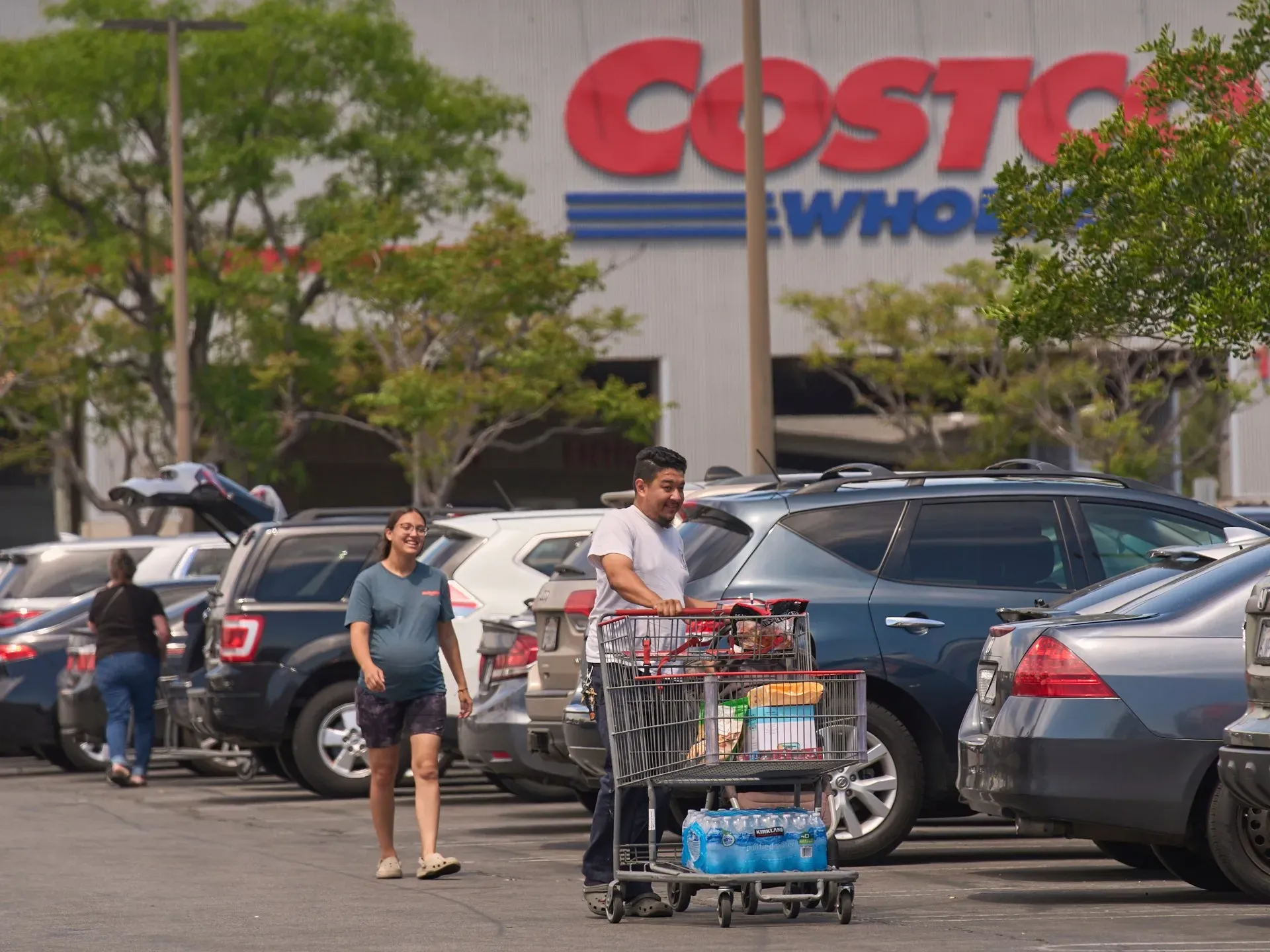US Consumer Sentiment Plummets Amid Trade War Concerns

US consumer sentiment has taken a significant hit, reflecting growing fears about the escalating trade war and its potential impact on the economy. This decline, noted across various demographics, indicates a stark shift in American shoppers’ confidence, particularly amidst rising unemployment concerns that have reached their highest levels since 2009. The recent findings from the University of Michigan reveal a staggering 11 percent drop in consumer sentiment, emphasizing worries over inflation expectations and the looming threat of a US economy downturn. As consumers brace for higher prices due to tariffs, many are stockpiling essentials in anticipation of further economic turbulence. This pervasive decline in consumer confidence not only impacts household spending but also signals deeper issues within the financial markets as investor sentiment wanes.
The recent downturn in consumer confidence in the United States casts a spotlight on the prevailing anxieties surrounding the nation’s economic stability. Many American households are now facing increased levels of uncertainty due to the ramifications of ongoing trade disputes and rising fears of job losses. With indicators showing a decline in public sentiment across various sectors and demographics, the climate suggests a widespread apprehension about inflation trends and potential repercussions for the economy as a whole. As expectations of unemployment continue to rise, consumers are modifying their behaviors, often retreating to more cautious spending patterns. This shift raises critical questions about the relationship between consumer perceptions and overall economic health, especially in light of looming inflationary pressures.
The Decline of US Consumer Sentiment Amid Trade Tensions
In April 2025, the United States experienced a significant plunge in consumer sentiment, a trend that has persisted for four consecutive months. This decline is largely attributed to the growing fears surrounding an escalating trade war, which raises concerns over potential job losses and inflationary pressures. The University of Michigan’s consumer sentiment index reported a staggering 50.8 percent, marking the lowest point since the early days of the COVID-19 pandemic. The pervasive nature of this sentiment drop cuts across various demographics, including age, income, and political affiliation, indicating a widespread unease felt by Americans.
As consumers brace for the impact of tariffs on prices and economic stability, many are opting to stockpile essential goods. This move suggests a lack of confidence among shoppers in the resilience of the US economy amidst these rising trade tensions. With the specter of a trade war looming large, the detrimental effects on consumer expectations could lead to a significant downturn in spending, making it crucial for policymakers to address these concerns head-on.
Frequently Asked Questions
How does the trade war impact US consumer sentiment?
The ongoing trade war has significantly impacted US consumer sentiment, leading to fears of rising unemployment and inflation. As tariffs increase, many consumers worry about higher prices for goods and potential job losses, which contributes to a decline in overall consumer confidence.
What are the implications of rising unemployment concerns on US consumer sentiment?
Rising unemployment concerns have driven down US consumer sentiment, as more individuals fear job security. This apprehension can lead to reduced consumer spending, which can exacerbate economic downturns.
How do inflation expectations affect US consumer sentiment?
Higher inflation expectations typically lower US consumer sentiment, as consumers anticipate increased prices for goods and services in the future. As a result, people may restrict their spending, further impacting overall economic activity.
What trends indicate a US economy downturn reflected in consumer sentiment?
The declining consumer sentiment index, alongside increased fears of unemployment and inflation, suggests a potential US economy downturn. Continuous drops in consumer confidence, as noted in recent surveys, highlight public worry over economic stability.
Why has consumer confidence dropped significantly in recent months?
Consumer confidence has dropped significantly due to the negative effects of trade wars, rising unemployment concerns, and inflation expectations. The perception of poor governmental handling of economic issues has further diminished trust among consumers.
How do political affiliations influence US consumer sentiment?
US consumer sentiment is sharply divided along political lines, with notable disparities between Democrats and Republicans. This division can affect how economic policies are perceived and how individuals respond to changes in the US economy.
What can be expected in consumer behavior with declining sentiment?
As consumer sentiment declines, spending is likely to decrease as households become more cautious. Although some consumers may continue to spend, widespread economic gloom tends to lead to more restrained purchasing behavior.
How do trade wars contribute to increasing inflation expectations?
Trade wars contribute to increasing inflation expectations as tariffs on imports raise costs, leading consumers to anticipate higher prices. This cycle can create a self-fulfilling prophecy where expected inflation drives actual inflation higher.
| Key Point | Details |
|---|---|
| Consumer Sentiment Decline | US consumer sentiment fell to 50.8%, lowest since COVID-19 pandemic. |
| Reasons for Decline | Concerns over trade wars and rising inflation leading to job loss fears. |
| Unemployment Expectations | Highest levels of expected unemployment since 2009 reported. |
| Political Impact | Consumer sentiment is reflecting dissatisfaction with government policy and leadership. |
| Market Reactions | Financial markets show signs of instability; investors are selling US debt. |
| Inflation Concerns | Expectations of inflation rising to 4.4%, highest since 1991. |
| Consumer Spending Behavior | Despite negative sentiment, consumers may still spend but with caution. |
| Party Sentiment Divisions | Significant sentiment decline across political affiliations, particularly independents. |
Summary
US consumer sentiment has sharply declined, reflecting rising concerns over economic stability. This decrease is primarily due to fears of a trade war which is expected to influence employment rates and inflation. As consumer confidence falters, Americans are becoming increasingly cautious in their spending habits, leading to speculation about potential economic downturns. The political landscape further complicates sentiment, as dissatisfaction with government policies contributes to a divided public perception, which could impact the economy moving forward.




